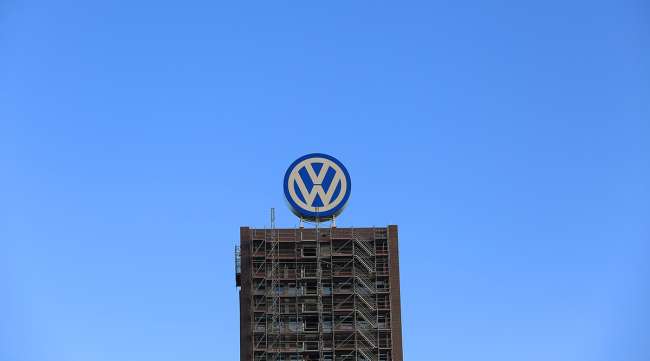Connecticut Gov. Dannel Malloy Says Volkswagen Settlement Funds Will Help Update Diesel Trucks

Connecticut is obtaining $7.5 million from the national Volkswagen settlement over emissions cheating and will use the funds to help replace aging diesel trucks and other equipment.
Gov. Dannel P. Malloy said the money will assist the state in reducing nitrogen oxide emissions and meet greenhouse gas reduction mandates.
“Climate change is real and cannot be ignored, and efforts to fight it also make Connecticut residents safer,” Malloy said May 30.
RELATED: Funds from Volkswagen diesel scandal to pay for zero-emission trucks in California
“That’s why it’s so vitally important that we set high standards for reduced emissions,” Malloy said. “While it will be impossible to offset the entirety of pollution that resulted from VW’s emissions cheating, the release of these funds will help to improve air quality and protect public health in Connecticut.”
Volkswagen, between June 2016 and January 2017, signed three Partial Consent Decrees over the installation and use of emissions-defeat software on nearly 590,000 VW, Audi and Porsche diesel vehicles. The software provided false emission test results, making it appear the vehicles met federal emissions standards.
Other money from the multibillion-dollar Volkswagen settlement is being used to promote electric car purchases by building more charging stations.
RELATED: VW to roll out electric trucks, buses in $1.7 billion project
The diesel money can finance projects that replace, repower or retrofit aging diesel trucks and vehicles and nonroad equipment. Both nongovernment and government entities are eligible to apply, and the state Department of Energy and Environmental Protection will oversee the program.
“The transportation sector is responsible for approximately 70% of smog-forming air pollution and 40% of greenhouse gas emissions in Connecticut,” DEEP Commissioner Rob Klee said.
“The VW funding will help us reduce more NOx and GHG emissions from mobile sources in Connecticut and move us closer toward meeting health-based air quality standards and long-term GHG reduction targets, while at the same time creating economic development opportunities in the state,” Klee said.
Application forms and guidance for the Diesel Emissions Mitigation Program are available on DEEP’s website.
DEEP also has scheduled a webinar for June 14 to review the application forms and related instructions for potential applicants. Project proposals are due to DEEP on July 31 by 5 p.m.
Distributed by Tribune Content Agency, LLC




